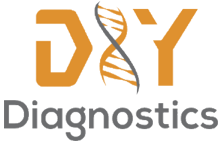 Hello Future prospective DIY Diagnostics stream researchers! I hope that reading my experience, along with some others’ will give you an insight into what kinds of research and projects we focus on and hopefully get you excited to join us!
Hello Future prospective DIY Diagnostics stream researchers! I hope that reading my experience, along with some others’ will give you an insight into what kinds of research and projects we focus on and hopefully get you excited to join us!
So, what was my experience at this stream been like so far? Initially, I started by learning the basics of lab techniques such as learning how to pipette correctly (note: it is very easy to mess up pipetting so this is critical to learn!!). As someone who had no prior exposure to working in any type of lab, these types of beginning assignments helped me set a solid foundation for future research. So do not worry! This stream will prepare you well with basics even if you don’t have any experience working in a lab.
During my first semester in this stream, I was exposed to several specific skills that I believe are critical to learn if you are interested in pursuing a career in the scientific field. Some of these include but are not limited to: culturing bacteria, qPCR, DNA extraction, app programming, and 3D printing. You may notice that I mentioned app programming and 3D printing and be thinking to yourself that those two skills doesn’t seem to fit very well among the other skills I mentioned such as DNA extraction! That’s right! Our lab not only focuses on generic lab skills like DNA sequencing and DNA extraction but we are also given the opportunity to dive into assignments totally unrelated to wet lab activities. This is one thing I really love about this stream. As someone who is into research but also looking into gaining computer experience, I believed that this stream would be the perfect fit for me and it was. Here’s why.
Although I learned a ton of skills doing wet lab activities such as running qPCR, DNA extraction and quantifying bacteria from the Waller Creek project, (you can read more about the WC project in the DIY website), I want to talk more about the app and 3D assignment. For the app assignment, we used a website called github, a web-based hosting service where people can develop software online. Through this platform, the DIY researchers, including myself, could develop online mobile apps through learning some of the basics of HTML5 and javascript coding. As someone who didn’t have much background in coding either, there were lots of learning to do. But in this lab, if you are willing to learn and ask for help, you will always be successful thanks to the responsive mentors and research educator, Dr. Riedel. Your mentors and Dr. Riedel, along with your peers are always there for you to help. This was what I loved about being part of the stream and especially realized during my app assignment activity. So yeah, it took a lot of help, effort and time, but the end result always delighted me.
The feeling of able to create something was exciting! Below is an example of part of the coding I did and the end result for some of my app assignments.



